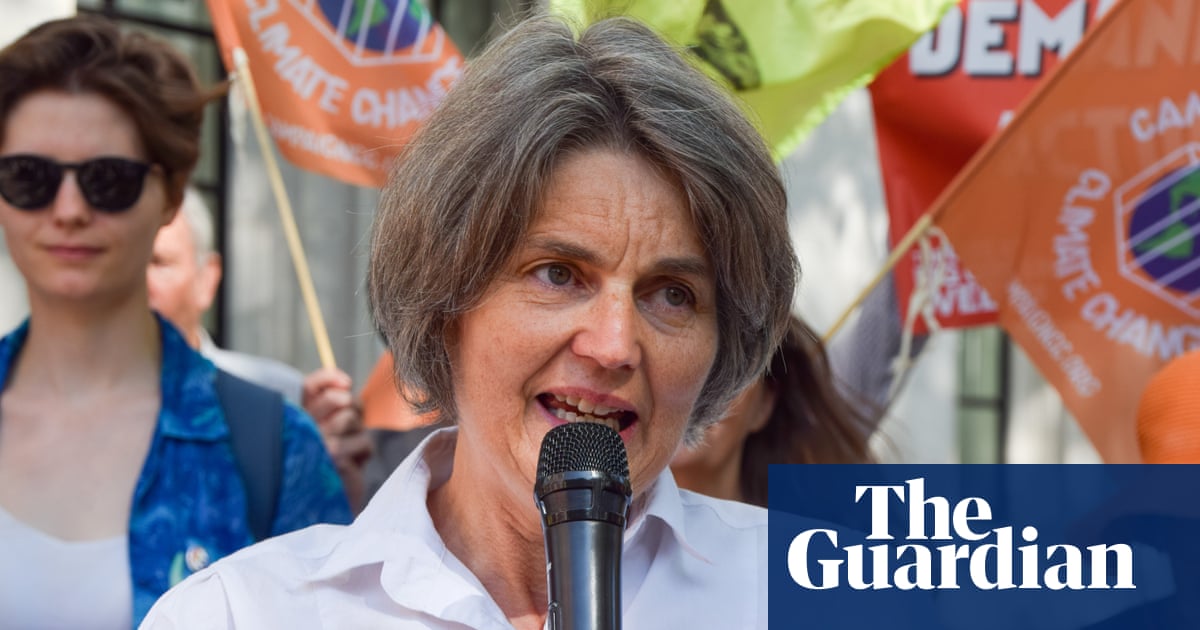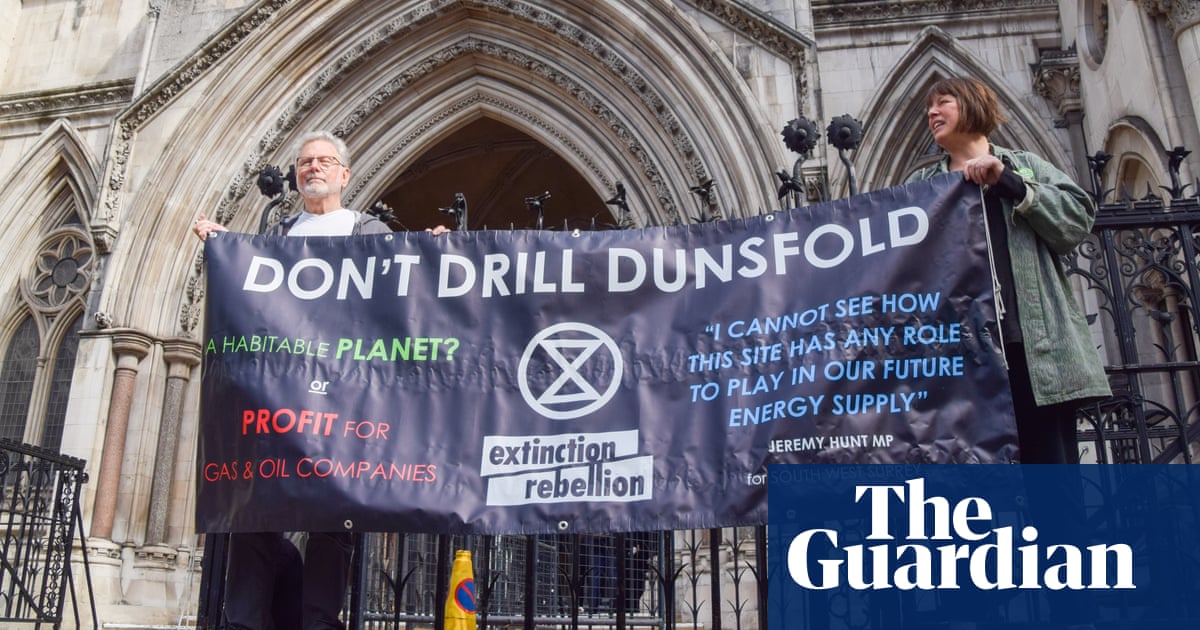
Climate campaigners have begun a supreme court challenge to plans to drill for oil in Surrey, in a case they hope could set a precedent restricting plans for future fossil fuel projects in the UK.
Sarah Finch is challenging Surrey county council’s decision to extend permission for a well at Horse Hill, near Gatwick airport in the Surrey countryside, which taps a subterranean reservoir developers believe may contain millions of barrels of oil.
The case turns on the interpretation of rules surrounding planners’ drafting of environmental impact assessments. The campaigners argue that the planning committee that granted permission for the drilling erred because it only accounted for emissions arising from the drilling site itself, rather than those from the oils’ end use, when it is burned and most of the emissions produced.
She has already lost in the high court and the court of appeal. On Wednesday morning, five supreme court justices, Lord Kitchin, Lord Sales, Lord Leggatt, Lady Rose, and Lord Richards, began hearing the case.
A victory would have serious implications for future plans for oil and gas wells and coalmines in the UK, forcing planners to take into account the total emissions from any fossil fuels extracted, rather than merely the emissions from the extraction.
Ahead of the case, Finch said: “The biggest climate impact from fossil fuel projects occurs when the fuel they produce is eventually burned.
“It’s unbelievable that these ‘downstream’ GHG [greenhouse gas] emissions are ignored when planning decisions are made. I hope that the supreme court will give a clear ruling and end the dangerous lack of clarity on this point.”
The proposed expansion of the Horse Hill site would include five drilling cellars, four hydrocarbon production wells, four gas-to-power generators, a process, storage and tanker loading area, seven 1,300-barrel oil tanks, and a 37-metre drill rig. Altogether, they would allow for the large-scale production of up to 3.3m tonnes of crude oil, for sale and use as transport fuel for the next 20 years.
“It’s difficult to overstate the importance of this case,” said Rowan Smith, a solicitor with Leigh Day, who is representing Finch.
“The supreme court will rule conclusively on whether or not the climate change impact of fossil fuel development in the UK must be taken into account before planning permissions are granted. There is a huge amount at stake for the future of the planet and the UK’s ability to meet its carbon reduction targets.”
Lawyers for Surrey county council dispute Finch’s claim, arguing her approach to the interpretation of environmental impact requirements was “misguided”.
Mr Justice Holgate considered the case in 2020 and dismissed Finch’s claim for a judicial review of planning permission granted by Surrey county council. Lord Justice Lewison, Sir Keith Lindblom and Lord Justice Moylan dismissed Finch’s appeal in 2022.
Such is the significance of the case, West Cumbria mining, the company behind plans for a controversial new coalmine in Cumbria, has submitted its own intervention. The outcome of Finch’s case could seriously affect the future of the proposed mine, which as yet does not include downstream emissions in its impact assessment.
Friends of the Earth, Greenpeace and the Office for Environmental Protection have also intervened, on Finch’s behalf. Outside the supreme court on Wednesday, Danny Gross, a climate campaigner with Friends of the Earth, said the case was part of a long struggle to hold the fossil fuel industry to account.
“It will set a crucial precedent that before any fossil fuel project goes ahead the full climate impacts need to be taken into account, because the emissions from extracting the fossil fuels are tiny in comparison to the emissions from burning them,” he said.












